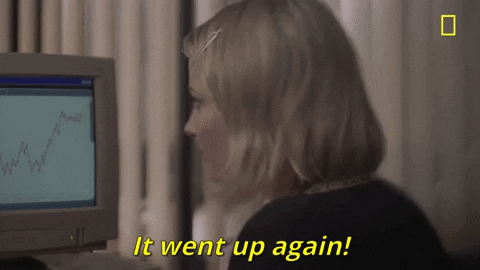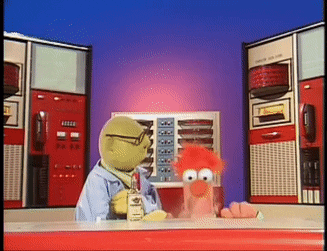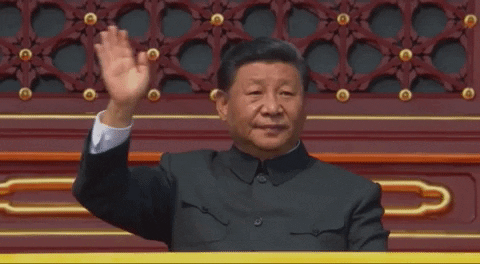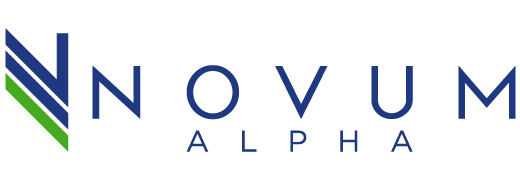
Whether you're one of those lucky enough to be reading this from a cafe, or out in a park, on the beach,with your toes wiggling in the sand and enjoying a warm summer's breeze, or if you're still staring at the back of your spouse's head under lockdown, do take some comfort that at least if not getting better, things are certainly not getting worse.
How do we know things are heading back to "normal"? Well protests have started again in earnest in Hong Kong for one.
And while Hong Kong's Hang Seng (-0.16%) took a blow in the early days of the most recent protests, traders soon realized that stocks in Hong Kong were doing just fine even all those months that much of Hong Kong was on the streets and shrugged off concerns.
Buoyed by gains in the U.S. and Europe, Asian stocks were up in the morning trading session, Tokyo's Nikkei 225 (+2.19%), Sydney's ASX 200 (+2.12%), Shanghai's SE Composite (+0.43%) and Seoul's KOSPI (+0.61%) were all up.
The S&P 500 (+1.50%) cleared a significant level of resistance yesterday and settled above 3,000 points for the first time in nearly three months to 3,036.13, as all 50 states of the U.S. started opening up.
Oil fell with WTI Crude Oil (Nymex) (-3.29%) trading below US$32, at US$31.66 on the back of a U.S. industry report raising fresh concerns about excess supply.
Yields on the benchmark 10-year U.S. Treasuries ebbed down slightly to 0.677% from 0.697% the day before, signalling at least some demand for safe assets - yields typically fall as bond prices rise.
Gold was unchanged, with Comex Gold (-0.06%) still hovering above US$1,700 at US$1,725.70 while Bitcoin (+3.66%) staged a late rally last night to test US$9,200, before retracing to currently trade now just below US$9,200.
Happy Thursday! Only one more day till the weekend!
Hang in there.

Banking on Biotech
Despite promising signs for a coronavirus vaccine, biotechnology and pharmaceutical companies were vaccinated from yesterday's rally.
Moderna (-9.58%) which reported encouraging early results from its unproven messenger RNA technology, saw its stock slide as did Inovio Pharmaceuticals (-8.78%). Merck (+0.38%) was up marginally, after acquiring privately held Vienna-based firm Themis Bioscience, which is working on a coronavirus vaccine.
And while the death toll from the coronavirus pandemic has crossed 100,000 in the U.S., with that number likely to rise in the coming days, all 50 states have begun reopening, in a mashup of election politics and fear.
Tomorrow, Washington D.C. will allow outdoor dining at restaurants, curbside and delivery service from non-essential retailers, as well as barbershops and hair salons to operate at a limited capacity.
As major American metropolitan areas move to reopen, they are hamstrung by the very factors that have fed an urban renewal over the past two decades - the ability to congregate masses of people in restaurants, offices, hotels, theaters and aboard public transportation.
But America, much like the rest of the world, is determined to press on, and that will have a profound effect on biotech and pharma companies. In the race to find a coronavirus vaccine, biotech and pharma firms are bracing themselves for export bans and have hedged by spreading vaccine production across different continents, in response to the geopolitical scramble to secure supplies.
Because a coronavirus vaccine would confer enormous economic and geopolitical power for the country which develops one, governments are understandably watching this space closely and firms are understandably trying to diversify the means of production.
In what public health experts are calling "vaccine nationalism," the winner in this high-stakes race to develop a coronavirus vaccine would be able to revive its economy months ahead of everyone else, and wield tremendous political clout over which "preferred partners" get shipments next.
And while most governments in Europe and Asia have vacillated from bleeding heart altruism to populist nationalism, when it's come to any vaccine developed within their borders, there is more than a chance that countries will block exports of the vaccine, just as they did with surgical masks and early experimental drugs.

And that's precisely why companies such as Johnson & Johnson (+0.23%) and Moderna are preparing factories on different continents to produce in parallel.
Multi-jurisdiction production of a vaccine also has another hidden benefit - regulatory arbitrage.
While the U.S. Food and Drug Administration may be mired in bureaucracy and it may take months to approve an experimental coronavirus vaccine, more adventurous jurisdictions may fast track potential vaccines and use their own populations as human test subjects.
This multi-jurisdiction approach by biotech and pharma companies has also provided opportunities for firms that don't often make headlines - those companies that specialize in the intermediate steps between product development and production.
Take for instance Catalent (-3.92%), a multinational firm which controls a portion of the world's limited capacity for a vaccine production step known as "sterile vial filling."
It may not sound like much, but "sterile vial filling" is the step for transferring the vaccine into the vial that is later injected into a person's arm for vaccination.
If that crucial step is not done properly, the vaccine is as effective as a sugar pill.
Catalent has already prepared factories in the U.S. and Italy to produce multiple potential vaccines.
Overnight, these intermediate vaccine production steps between the laboratory and the needle have become strategic assets.
And the companies that are responsible for these strategic assets, will eventually become financial assets as well.
Much as how defense companies have become regulated by governments, we can expect that biotech companies will be more heavily scrutinized in the near future as well - with control of exports likely to come under increasing regulation.
The ability to withhold a lifesaving vaccine from another country is perhaps a far more powerful weapon than a nuclear-tipped ballistic missile.
But as Merck CEO Ken Frazier noted in an interview last week with The Wall Street Journal,
“Unless we immunize essentially the whole world, none of us will be safe.”
Over a 100 different vaccines are currently in development, with no less than 10 currently being tested on humans.
On Monday, U.S.-based Novavax (-5.62%) announced that it had begun clinical trials of its own coronavirus vaccine, the latest company to reach that stage.
Novavax it is intending to manufacture its vaccine (provided that it works) in as many continents as possible.
Washington has also doled out over US$2 billion to finance vaccine manufacturing by four major drugmakers - Johnson & Johnson, Moderna, AstraZeneca (-3.96%) and Sanofi (-0.40%), to help bring a coronavirus vaccine to market.
Last week, the Trump administration also said it would provide up to US$1.2 billion in grants to AstraZeneca to manufacture some 300 million doses of any coronavirus vaccine for the U.S.
Whether or not any of these Washington "preferred" firms actually develops a successful coronavirus vaccine or not may become increasingly less relevant.
The same way that not every experimental weapon coming out of a defense company is likely to work (just Google "F-35 fighter"), as long as a government is committed to buying it, the company will still make money.
In that sense, even if none of these four major drugmakers develops a working coronavirus vaccine, their factories can still be poised to manufacture the vaccine made by another firm, if and when it's developed.
Failing which, all of the money Washington is throwing at them can be used to buy over the biotech firm that does develop the vaccine.
In that sense, all four stocks are one way to hedge a bet on biotech, without taking a direct position on the success of any specific coronavirus vaccine.

Tensions On, Tensions Off
Fans of the Star Wars franchise will be familiar with the Imperial capital planet of Coruscant.
A dense city-planet, creators of the fictitious world of Coruscant could easily have drawn their inspiration from the real-world city of Hong Kong.
One of the most densely populated cities on the planet, Hong Kong's skyscrapers resemble today's stock markets, reaching endlessly towards the sky.
But it's what's on the ground that has investors most concerned.
With the threat from the coronavirus subsiding in Hong Kong, protesters have taken to the streets again, as Beijing has lowered the boom, pushing through new draconian national security laws that threaten the city's already diminishing democratic freedoms.
In response, Washington said that if the national security laws pass in Hong Kong, the city will lose its special trading status with the U.S., as it could no longer treat Hong Kong as entirely autonomous from China.
According to U.S. Secretary of State Mike Pompeo,
“No reasonable person can assert today that Hong Kong maintains a high degree of autonomy from China, given facts on the ground.”
And while shares in Hong Kong tumbled on the news, with the Hang Seng Index down 1.6% by lunchtime, the practical implications of Washington's response is probably more innocuous.
While China's state-owned media went to town, lambasting the U.S. for hypocrisy and pointing to America's own national security legislation, Chinese politicians were far more restrained in their response.
For one thing, Washington's removal of Hong Kong's special autonomous status would be a feather in Beijing's cap and deliver on a silver platter, what Chinese President Xi Jinping has wanted all this while - a hastened full scale return of Hong Kong to the mainland.
Commercially, Hong Kong and the U.S. have relatively low levels of trade anyway, and dropping the city's autonomous status would play directly into Beijing's hand, giving Beijing the pretext that it's been looking for all this while to swallow the city whole.
In terms of significance, Hong Kong no longer plays as significant a role in the Chinese economy as it once did and in terms of economic sizing, has long been overtaken by nearby Shenzhen and Shanghai to the north.
Many western businesses still use Hong Kong as a "gateway" to China, but even that role has diminished in the past decade.
And it's not clear if Hong Kong will be the flashpoint which the Trump administration is looking for to fuel rising U.S.-China tensions.
More likely then is that Washington will impose some punitive tariffs on selected imports from Hong Kong, but stop short of disregarding Hong Kong's special treatment altogether.

Hong Kong is still very much Bruce Lee's city.
In the context of Chinese history, Hong Kong continues to be a very sore point, perhaps more testy than even Taiwan.
A legacy of the Chinese Qing dynasty's failings, Hong Kong remains a painful reminder of China's humiliation at the hands of foreign (specifically western powers) in the 19th century, when the Chinese empire was at its weakest.
Ceded to the United Kingdom in the mid-19th century, Hong Kong was held on a leasehold by the Crown until its return to China in 1997 and even that return came with conditions - that Hong Kong would be guaranteed a high degree of autonomy from Beijing for the next 50 years.
Imagine having someone return something they had stolen from you and then being told how you could now use it - that's precisely the sort of baggage that Beijing has had to deal with.
To be sure, Hong Kong's autonomy has been gradually chipped at for decades since its return to China.
Like a frog slowly being boiled alive in a pot of warming water, Beijing has persistently and consistently, held back on promises of democracy - such as a mini-constitution for Hong Kong.
And where China has not overtly stymied democratic freedoms in the city, it has covertly placed psychological pressure on the city's inhabitants by "disappearing" subversive publishers, journalists, writers and activists who wandered into China or were "wandered" into the mainland.
For most mainland Chinese, the total reunification of Hong Kong with the mainland is an inevitability, so why should it matter when it happens?
Would another 30 years of democracy help when we already know the destination?

Seen from that lens, while Washington, particularly hawks in the Senate, will be keen to punish China for its increasing oppression of Hong Kong, pragmatists on both sides of the floor will see that this isn't a mess that the U.S. created and it shouldn't have to be something that it will fix.
If tensions do ratchet up between the U.S. and China, it won't be because of Hong Kong - for America, the Brits made this mess, let them go clean it up.
Because it wasn't the U.S. that occupied Hong Kong all those years.
Demonstrating restraint, the Chinese embassy in Washington clarified that the proposed legislation in Hong "targets a very narrow category of acts that seriously jeopardize national security and has no impact on Hong Kong's high degree of autonomy, the rights and freedoms of Hong Kong residents or the legitimate rights and interest of foreign investors in Hong Kong."
And it's this last line of the statement that is significant - "legitimate rights and interest of foreign investors in Hong Kong."
Basically, China is saying that Hong Kong is open for business, but Beijing will have its way with those demanding more democracy and deal with them through "socialism with Chinese characteristics."
That Beijing is also not eager to inflame tensions with China over Hong Kong can be seen in the Chinese embassy's muted response to take "necessary countermeasures" to any U.S. actions on Hong Kong.
Ultimately, inevitability leads to resignation and resignation leads to pragmatism.
The U.S. and China may quarrel, but only insofar as it suits each others domestic political agendas, both sides understand how important the other is to their own economies.

Bitcoin Bumps Back Up - Can't Die, Won't Die
Bitcoin had a positive 24 hours - it was too close to call and it could have gone either way - but bulls backed Bitcoin bigly and sent the benchmark cryptocurrency soaring past US$9,200 at one stage before clawing back some gains and currently trades around US$9,170.
Whether it's global optimism, a return to risk assets or just manipulation, volumes and technical indicators all suggest that there is more in store for Bitcoin as a bullish pennant has started forming again.
Just as how Bitcoin tested US$8,700 and found that it did not like that level at all, nor did it like US$9,900 either, it has now bounced off the lower level of support and is drifting northwards towards the upper boundaries.
Yesterday we suggested that those looking to go long on Bitcoin, consider buying in on a pullback closer to US$8,800 and taking profit closer to US$8,900, with a more speculative punt all the way to US$9,000 and US$9,100 as additional profit levels, while setting a stop loss at US$8,700.
This trade was profitable and even the speculative profit levels were cleared.
However our short trade for Bitcoin which considered a setup around US$8,880 and a short all the way down to US$8,700, with a more speculative profit target at US$8,500 and a short cover at US$8,950 was stopped out with a modest loss.
Now that Bitcoin is hovering just below US$9,200, with some evidence of consolidation at that level, there are indications that it will make another push towards US$9,300 in the immediate term and another rush for US$9,500 in the mid term.
Those looking to go long on Bitcoin can consider entering at US$9,160 and taking profit at US$9,300 and a more speculative exit at US$9,500, but set a stop loss at US$9,080.
Looking to short Bitcoin, consider setting up the short to enter at US$9,200 and short all the way down to US$8,880, with a short cover at US$9,300.
The short trade will make more money but is more risky and the long trade will make less money but is the odds on favorite.

Et tu Ethereum?
Yesterday we suggested that those looking to go long on Ethereum could consider timing a setup to enter around US$201.50 and take profit at US$203 and US$205, but not to wait till it cleared the resistance, but take profit just below the profit target and always to protect the trade with a stop loss, in this case at US$200.
That trade turned out to be highly profitable.
For yesterday's Ethereum short, we suggested waiting to enter at US$205 and short all the way down to US$199, with a short cover at US$207 - this trade was stopped out, with a small loss.
Ethereum had a brilliant run similar to Bitcoin yesterday and has formed a bullish pennant as well, having managed to convincingly clear the resistance at US$205, it also cleared US$207 several times before retracing now to trade around US$206.
With so many shots on goal, Ethereum's US$207 level of resistance appears to be weak, but it will need Bitcoin to clear US$9,300 to see Ethereum race towards US$210 again.
Looking to long Ethereum, consider setting up an entry close to US$206 and set profit targets at US$208 and US$210 with a stop loss at US$205.
Those looking to short Ethereum can consider waiting till it rushes for US$208 again and short all the way down to US$204 and US$202, with a short cover at US$210.
Yesterday we expected Ethereum to make another push towards US$205, it did.
Ethereum is likely to push towards US$209 today.
Novum Digital Asset Alpha is a digital asset quantitative trading firm. Exclusive access to Novum Digital Asset Alpha's Daily Analysis is made in conjunction with Bitcoin Malaysia.
The information and thoughts laid out in this analysis are strictly for information purposes only and should not be regarded as an offer to sell or a solicitation of an offer to buy any security in any jurisdiction where such an offer or solicitation would be in violation of any local laws.
It does not constitute a recommendation or take into account the particular allocation objectives, financial conditions, or needs of specific individuals.
For more information about Novum Digital Asset Alpha, please click on the image below:

Posted from my blog with SteemPress : https://www.bitcoinmalaysia.com/2020/05/28/novum-digital-asset-alpha-daily-analysis-for-28-may-2020/
Congratulations @bitcoinmalaysia! You have completed the following achievement on the Hive blockchain and have been rewarded with new badge(s) :
You can view your badges on your board And compare to others on the Ranking
If you no longer want to receive notifications, reply to this comment with the word
STOPTo support your work, I also upvoted your post!
Do not miss the last post from @hivebuzz:
Support the HiveBuzz project. Vote for our proposal!